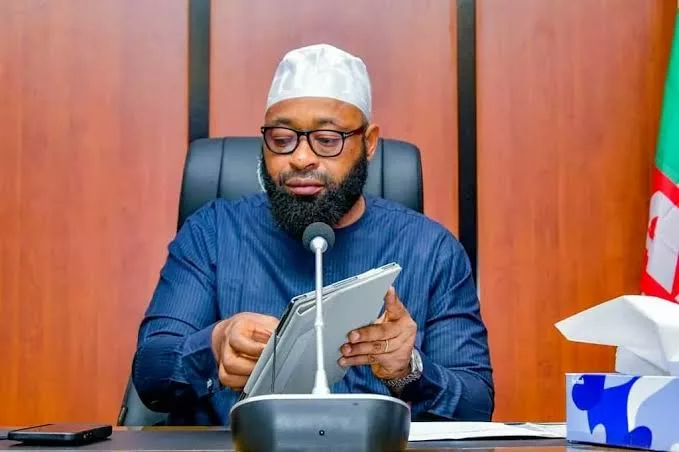Governor Mohammed Umar Bago of Niger State has declared that Nigeria must transcend the rhetoric of food security and embrace true food sovereignty, with the strategic autonomy to produce, control, and export its own food systems.
The governor who spoke at a seminar held at the Nigerian Institute of International Affairs (NIIA), in Lagos, to mark the 2025 World Food Day, Gov. Bago argued that despite progress made so far, the nation still lagged in converting agricultural potential into national strength.
While delivering his keynote address on “Food Security To Food Sovereignty: How Far Has Nigeria Gone? to an audience of diplomats, policymakers, academics, and stakeholders, he warned that the image of agriculture as a poverty-ridden occupation must be discarded.
Governor Bago, fondly identifying himself as “Farmer Governor”, insisted that the next era must inspire youths to see farming as viable, respectable and profitable.
“When a farmer wears torn hats and tattered clothes, it discourages generations, but you can be a farmer and become president. You can be a farmer and become anything,” he declared.
He advocated food sovereignty, describing it as dignity based on the ability to produce more than the country’s population consumes and what we need for the future.
“Food sovereignty is no longer a luxury; it is the only pathway to a self-reliant and globally competitive Nigeria”
He emphasised that Nigeria must decolonise its food systems and restructure its global positioning, not as a passive importer, but as a food powerhouse capable of asserting its will in international markets.
Reflecting on Nigeria’s vast agricultural capacity, Governor Bago decried the nation’s continued reliance on food imports, particularly rice, wheat, and eggs, saying, “It is a shame that we import eggs into Nigeria.”
He advocated for a model that sees citizens not as dependents, but as producers, with each family potentially owning a layer of chickens, which serves as an inclusive agricultural empowerment.
The Governor announced groundbreaking investment deals, including a $100 million livestock partnership with Saudi Arabia and a $2.5 billion agro-industrial investment with Brazil’s JBS.
However, he commended President Bola Tinubu’s administration for empowering subnational governments to source international funding independently and credited Niger State’s new agricultural renaissance.
Bago lamented Nigeria’s staggering post-harvest losses, up to 50 per cent for some commodities, as a critical barrier to growth, describing them as inefficiency and a monumental waste of resources.
He canvassed for urgent investment in logistics, storage, and processing infrastructure while buttressing the significance of the Niger-Lagos partnership, as a model, with Lagos State funding food production in Niger to the tune of ₦500 billion, beginning with an initial ₦5 billion disbursement.
Governor Bago, while speaking on regional cooperation, revealed a landmark cross-border cotton production deal between Niger State and the Benin Republic, aimed at supplying Africa’s largest textile mills.
Commenting, Prof. Bolaji Akinyemi, Chairman of the NIIA Governing Council, lauded the Niger State Governor for his innovative agriculture drive while warning that food sovereignty starts at the table.





